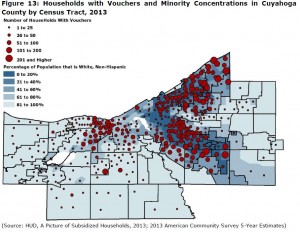
Coming up with smart and effective social policy is “Mission Impossible”. And evaluating social policy is not much easier. One way to evaluate a social policy is to ask, “does it do more harm than good?” Insert social policies into that phrase and ask yourself, “Does Obamacare do more harm than good?”; “Does Social Security do more harm than good?”; “Does public education do more harm than good?” What about family medical leave, food stamps, immigration? All of these policies have unexpected consequences, social costs and fraud, but do they help our society more than they harm it? The one perfectly predictable aspect of any social policy is its ability to start heated political debate, a la what we will see as party platforms are developed at the Republican National Convention and Democratic National Convention later this month.
I wrote this in the hope that you will begin to give some serious thought to a new social policy, a low income housing policy, a law prohibiting source of income discrimination. Do you think it is a good idea for Cleveland Heights to adopt a law prohibiting source of income discrimination? If passed, this would mean that landlords in our city could not refuse to rent to someone just because they have a Section 8 or other housing voucher. (Actually the Section 8 Program is now called the Housing Choice Voucher Program.) Landlords can still refuse to rent to someone because of their credit history or income, but not because the rental unit is paid for with a voucher. Section 8 tenants are held to the same standard as any other tenant.
HUD operates the Housing Choice Voucher Program (Section 8) by establishing Fair Market Rent for each area. For Cleveland Heights, HUD has set the Fair Market Rent as: 1-bedroom apartment $658; 2-bedroom apartment $829; 3-bedroom apartment is $1,091. The tenant pays 1/3 of their monthly income toward the rent to the landlord and the government voucher pays the landlord the rest, up to the Fair Market Rent amount. The rental unit is inspected once a year by the housing authority that issues the voucher; Cleveland Heights also inspects all rental units once a year; the city inspection has nothing to do with the inspection needed for the Section 8 rental.
The Section 8 inspections verify that these rental units are “safe, sound and sanitary”. (The rental units do not have to be beautiful, new or have modern conveniences, just “safe, sound and sanitary”.) These inspections protect tenants from exploitation by slumlords such as the Brown brothers, who, according to this 2/2/16 Plain Dealer article are able to continue to operate a large and apparently profitable business despite housing, civil and criminal violations and delinquent taxes. In the end, who will pay for the health and educational problems of the tenant’s toddler’s exposure to lead paint? We all will.
You can see from the Fair Market Rent amounts listed above that some communities will have few if any rental units that will accept Section 8. This economic factor bars poor families from living in communities that are considered “high opportunity” and also contributes to the racial segregation and the concentration of poverty that is one of the most salient features of our county (see image).
Should Section 8 voucher tenants be restricted to some cities? The poor bring with them a disproportionate share of social problems; but this is not true of Section 8 voucher holders, who have to meet stringent guidelines. Even if Section 8 voucher holders brought more problems than the average tenant—again, this is not true, but if it were, is it fair for some cities to have many Section 8 properties and other cities to have none? Of course landlords have property rights, but does that include the right to discriminate against tenants who have low incomes? Laws that prohibit source of income discrimination would permit Section 8 tenants to select housing in the same way as anyone else-from all available choices.
Federal law prohibits housing discrimination based on race, color, religion, national origin, sex, familial status, and disability. Ohio law additionally prohibits discrimination based on ancestry, and military status. Some ads for rental properties state clearly “No Section 8”. This is the phenomenon source of income discrimination laws are intended to stop.
On July 16, 2015, HUD released its final rule on Affirmatively Furthering Fair Housing. This means that cities receiving HUD money, as Cleveland Heights does, must show progress reducing barriers to fair housing. Passing an ordinance that prohibits source of income discrimination is one way to demonstrate to HUD that our city is making efforts to increase fair housing. South Euclid, Warrensville Heights, Linndale and University Heights have already adopted laws prohibiting source of income discrimination.
Should Cleveland Heights adopt an ordinance that prohibits source of income discrimination?
For more specifics about the Section 8 program that Cuyahoga Metropolitan Housing Authority runs, click here and enter the world of lotteries, wait lists and a family of 4 being ineligible if their annual income exceeds $31,300.
I am not an expert on this topic, but I will be happy to try to answer your questions about source of income discrimination if you post them in the comment section below.
Thank you.



Whatever CH “Mayor” and Land Bank Director Stephens says is OK by me!
If it’s good for the Land Bank, it’s good for CH.